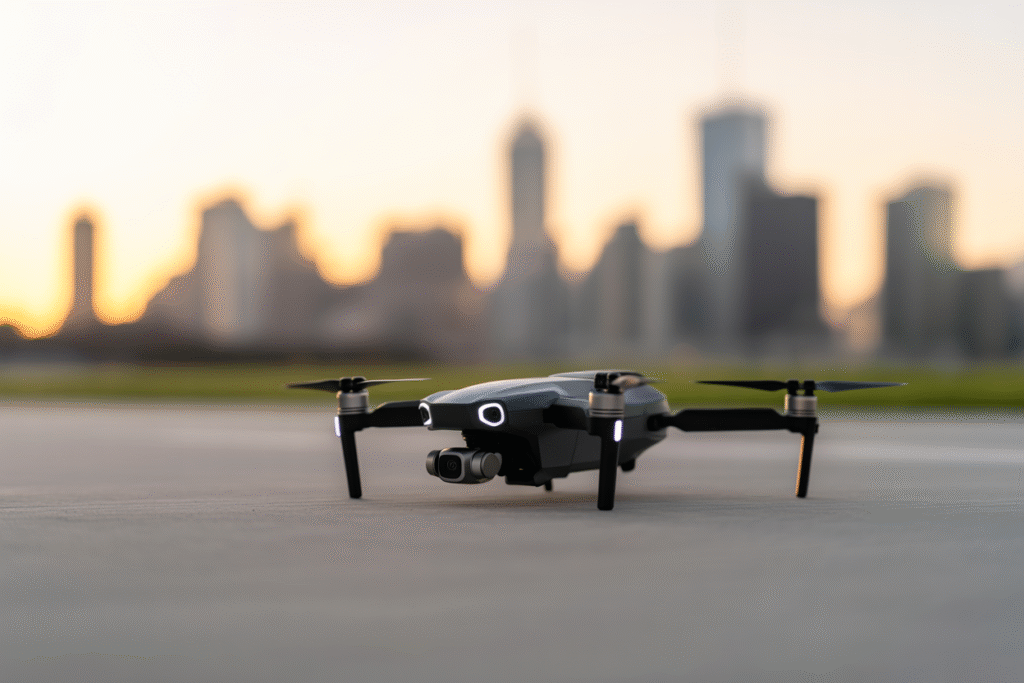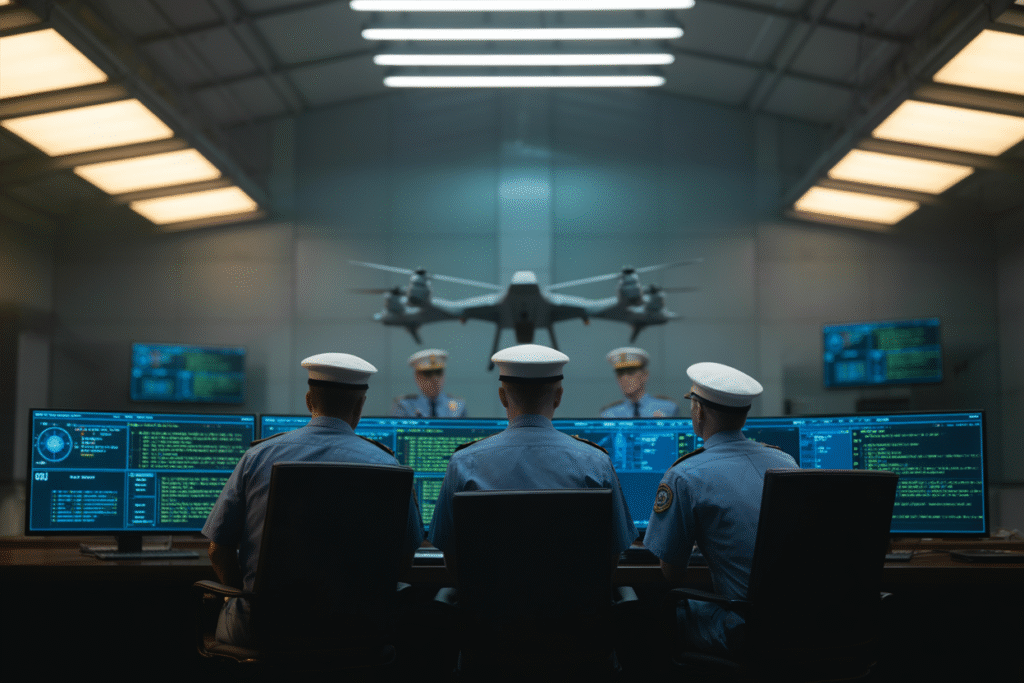From Spotify bankrolling battlefield bots to Taiwan’s robot sentries, here’s what just happened in the AI and military headlines while you drank coffee.
Seven o’clock just rolled past on the West Coast, but the internet never sleeps when artificial intelligence meets artillery. In the last sixty minutes alone, streaming giants are funding death from the skies, democratic islands are shopping AI bodyguards, and veteran hackers are racing AI missiles to zero-hour. Buckle up—here’s the lightning-round recap you can still read before your latte goes cold.
Chapter 1: Move Over Playlists, Spotify Is Now Curating Airstrikes
Take a sip of that familiar green-cup joe and picture this: the same algorithm that queued last weekend’s road-trip playlist is now quietly backing motherboards in killer drones. A fresh leak—circulating since 13:42 UTC—reveals Spotify’s venture arm poured an eight-figure check into Prima Materia, a Swedish start-up building AI-guided loitering munitions. The meme factory blew up faster than a defect-laced drone; tweets demanding users #DeleteSpotify hit 400-plus quotes before I even found the cream for my coffee.
Why does it sting? Because most people still see Spotify as their mellow background track, not an arms-length partner in warfare. The ethical stink is thick: consumer-subscription revenue, privacy-rich data sets, and now battlefield R&D all swimming in the same revenue pool. If a music service can pivot to predator drones, what stops your favorite podcast app from funding cyber-snipers tomorrow?
Keywords slipped in: AI in military, Spotify AI military, autonomous weapons ethics.
Chapter 2: Taiwan’s AI Firewall—Buying Robots to Out-Stare Beijing
While the world argued about playlists, Taipei was busy at 13:34 UTC signing a fresh directive with Silicon Valley darling Anduril. The deal puts autonomous ghost-shark drones, AI coastal sentries, and digital tripwires around the entire island faster than you can say “One-China policy.”
Imagine megabyte-sized bait programs luring incoming missiles into decoy folders or drone swarms that pop up like confetti the moment a Chinese radar coughs. The Taiwanese defense minister, speaking on background, called it a “porcupine strategy powered by pixels.” Critics see escalation; supporters view it as survival tech buying precious minutes for international aid to arrive.
And yes, the same autonomy features that could defend a democracy can just as easily be copied, tweaked, or hacked to stalk citizens. AI in military defense—savior or slippery slope?
Chapter 3: Zero-Day Tracker—AI Telling Hackers They’re Too Slow
Hackers hate a speed bump. SentinelOne’s fresh update, posted at 13:00 UTC, brags that its endpoint AI spots breaches a full 63 percent quicker than last year. Translation: the good guys’ algorithms now read the fingerprints of an attack, predict next hops, and slam doors before the culprit finishes typing.
How? Picture a neural network binge-watching terabytes of malware samples like it’s Netflix, learning before breakfast which snippets spell doom and which merely prank. Sounds like a win—until you realize the darknet sells the same learning tools.
Here’s the short bullet version:
– Pros: Less downtime, smaller ransom payouts, safer hospitals.
– Cons: False-positives locking your dad out of payroll, plus the endless cat-and-mouse where defenders need faster chips every quarter.
AI in cyber warfare just became the new hot warzone—and your laptop might be the front line.
Chapter 4: Boardroom Brass Gets Stripes—When Tech CEOs Turn Colonels
Scroll past breakfast memes and you’ll find a mini-viral storm: an open-source intelligence post at 12:58 UTC named at least four tech executives who allegedly accepted military colonel commissions this week. Headlines scream “Digital Colonels” and conspiracy theorists are already blending vaccine QR codes with autonomous tanks.
Crazy? Maybe. But the line between corporate brainpower and national defense is dissolving faster than sugar in hot water. One rumored scenario: open-source data merged with classified targeting algos, all tweaked by executives who still commute in Patagonia vests. Critics fear a new techno-feudalism—elite technocrats pulling rank on democracy itself. Supporters retort that speed matters more than tradition when hypersonic missiles shave decision-making windows to seconds.
Call to mind that recurring nightmare: an Alexa-style general asking if you’d like to “launch the nukes with a voice command.” Hey, at least you get free shipping.
Chapter 5: The 2040 Countdown—Will Robot Cops Cancel Voting Booths?
By the time your next coffee refill hits, someone, somewhere in the replies section is already prophesying robot police ending democracy by 2040. Posts flying since 12:47 UTC picture metal deputies with facial-recognition rifles guarding ballot drop boxes, determining who votes and who gets flagged for “anomaly review.”
Sounds sci-fi until you notice how fast hobby drones evolved into wedding paparazzi fleets, then battlefield kamikazes. Timeline cheat sheet below:
– 2025—AI body-cams flag suspects in real time.
– 2030—Patrol robots patrol riot zones while cops sip lattes remotely.
– 2035—Predictive policing AI decides if your TikTok rant warrants a pre-emptive visit.
– 2040—Democratic reboot or algorithmic lockdown?
The tech treadmill keeps speeding up, so the window for ethical guardrails is closing faster than a laptop lid at airport security.


